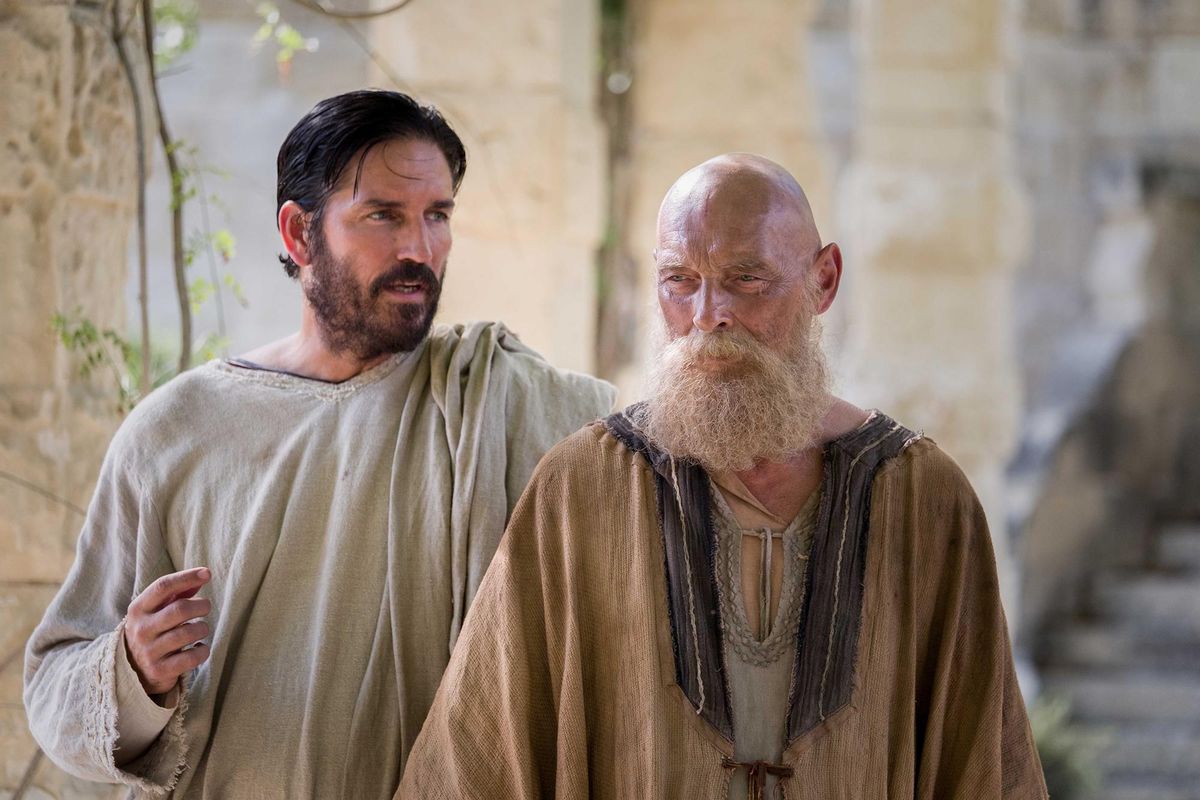Review: ‘Paul, Apostle of Christ’ portrays the early Christian community at its most fragile

“Paul, Apostle of Christ” comes from Sony Pictures Entertainment’s Affirm label, an offshoot that has produced such Christian-themed dramas as “Heaven is for Real,” “Soul Surfer” and “Risen.” Less interested in blunt proselytizing than more open-ended explorations of faith and its challenges, Affirm films have gratifyingly avoided the kind of pietistic Sunday-school pageantry that characterizes so many motion pictures of the genre.
Written and directed by Andrew Hyatt, “Paul, Apostle of Christ” is no exception. A portrait of the titular Christian convert and leader of the early church as he faces imprisonment and martyrdom at the hands of Roman oppressors, this absorbing drama benefits from lush production values (it was filmed in Malta) and first-rate performances from a cast of seasoned actors.
Inspired by the New Testament book Acts of the Apostles, the story focuses on Luke (Jim Caviezel), a Greek physician and colleague of Paul’s in setting up early Christian communities, as he visits his incarcerated friend, desperately recording his final words of wisdom while Nero’s forces torture and murder their brothers and sisters outside the prison gates.
Hyatt includes flashbacks of Paul’s famous conversion, from tormentor of Christians to a believer, while on the road to Damascus. Those sequences are filmed in a milky, filtered light and slow-motion haze that threatens to drench “Paul” in Hallmark-card sentimentality. But when the action returns to Rome, the movie becomes far tougher and more intriguing.
Despite Caviezel’s dazzlingly white teeth – not to mention the fact that he quotes the same Jesus on the cross that he played in Mel Gibson’s “Passion of the Christ” – the actor is convincing as a man of both reason and belief. James Faulkner brings sonorous authority and deep sensitivity to Paul, whose insistence on following Christ’s most essential commandments – to love God, and to love one’s neighbor as oneself – is both gentle and uncompromisingly courageous.
In a polyglot production that easily accommodates French, British and Irish accents, Olivier Martinez plays Paul’s captor, a man whose belief in his own Roman gods is being rattled by the fatal illness of his daughter. But next to Faulkner’s quietly affecting portrayal, the most compelling passages of the film take place in Rome’s embattled Christian quarter, where a frightened and rapidly fraying community is wondering whether to stay and fight or escape to rebuild. As Aquila and Priscilla, the nominal leaders of the beleaguered insurgents, John Lynch and Joanne Whalley deliver nuanced, fully inhabited performances that resonate with propulsive urgency and zeal.
“Paul, Apostle of Christ” is clearly well timed with Lenten reflections on sacrifice, service, suffering and responsibility. But it offers an equally relevant – and inspiring – portrayal of principled steadfastness and spiritual integrity in the face of a petty, corrupt and tyrannical leader. In that sense, and appropriately enough, “Paul, Apostle of Christ” offers both solace and a bracing, even revolutionary, challenge.